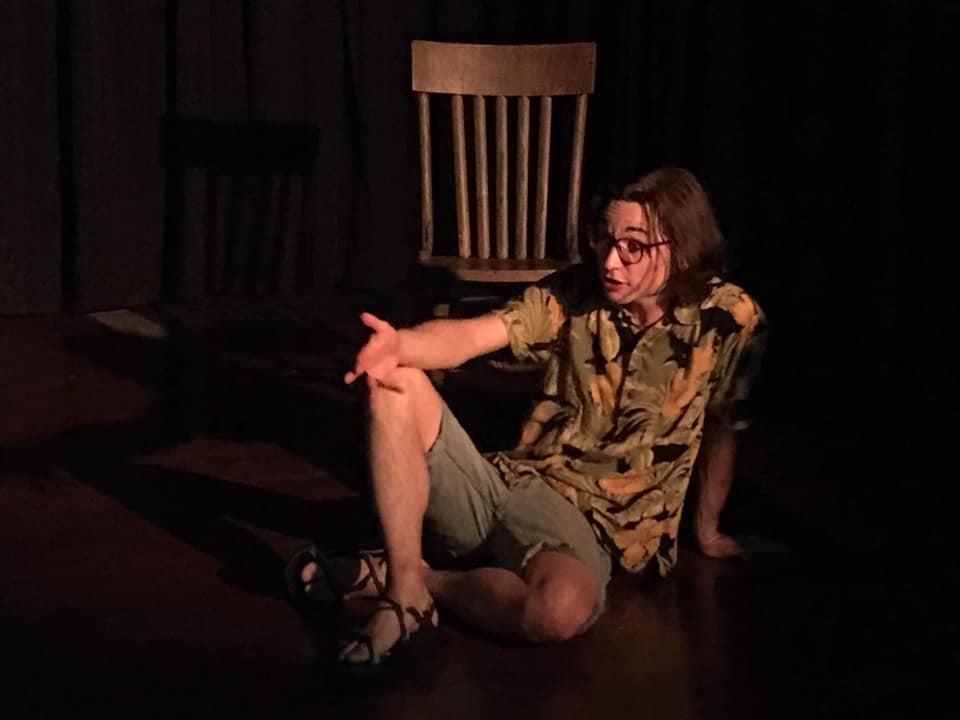SALT LAKE CITY — The Jewel of Colorado, written and performed by Aidan Powell Croft and produced by Sasquatch Theatre Company, is a powerfully told story of the purposeful flooding of Glen Canyon and all it’s Native American history and beauty to create today’s Lake Powell in Southern Utah. I was impressed by the home videos playing in the background of families visiting Lake Powell that seemed to match the dialogue as the performance went on.

I had never heard this story before, and as a Utah native, I was surprised and confused. I thought Lake Powell was natural and always admired the beauty of the narrow, twisting lake that wended through the deep red rock canyon. In his tale, Croft shared the history of Glen Canyon from the perspective of multiple people who knew it before it changed and from those who had lived in the aftermath.
He performed every character well. When playing one man, Croft made the corners of his mouth turn down so strongly when he talked, he looked like a different person. I also liked the accents he came up with, like a woman who sounded like she had a Boston accent. Croft also sang songs while playing the guitar, and I loved the ambiance he created with the music. For the character who was the decision maker in creating Lake Powell, he took on a laid-back attitude and actually ate a big bowl of cereal while spouting his monologue.
The main reason I wouldn’t put this on my list of favorites is because I couldn’t empathize with his characters’ sadness about losing the canyon. It seemed a small thing to feel so sad about when so many people are dying and hurting right now in the world, and also when there is also so much joy in other things that could use our attention. Because the event happened so long ago and because so many people enjoy Lake Powell now, the show needed to create higher stakes—it needed to be more urgent of a problem. Whatever the problem, I try to find solutions, and I didn’t feel the need to solve this kind of problem, because it seemed to affect so little and would be a big undertaking to try to do anything about it at this point. Perhaps the show could focus on the affects of the flooding now, besides it being a common vacation spot. However, if this show is about remembering the incident, perhaps focusing less on the pain of those who didn’t like the change and more on the beauty of what was lost would be more beneficial. Croft mentioned Native American drawings and dwellings, but there were no pictures or descriptions of them in the show, so it was difficult to imagine or feel just what was lost.
Despite the flaws, the show was well written and taught history of Lake Powell that I hadn’t known before. The performance at the Great Salt Lake Fringe Festival was enjoyable, and it was fun to watch Croft eat cereal and talk so clearly at the same time. Though the environmentalist theme didn’t work for me, it is still an interesting show to see.
[box]The Jewel of Colorado plays various dates and times through August 11, 2019 as part of the Great Salt Lake Fringe Festival. Ticket prices vary. For more information about the Festival, visit their website.[/box]
